|
||||||||
|---|---|---|---|---|---|---|---|---|
|
||||||||
 |
||||||||
Fistula tracts must be treated because they will not heal on their own. There is a risk of developing cancer in the fistula tract if left untreated for a long period of time. Most fistulas are simple to treat. Either the tract or fistula can be opened or the tract and the pocket inside are completely removed. Can you heal a fistula without surgery? Anal Fistula Now Can Be Completely Cured Without Surgery. Anal fistula a challenge for modern surgery but curable by grade kshar-sutra in Ayurveda (Indian system of medicine). ... The latest method of video assisted anal fistula treatment (VAFT) is not satisfactory due to high incidences of recurrence after the surgery. Is fistula surgery painful? You will likely have some pain and bleeding with bowel movements for the first 1 to 2 weeks. ... Sitting in warm water (sitz bath) after bowel movements will alsohelp. You may notice a small amount of pus or blood draining from the opening of your fistula. Is a fistula a sign of cancer? A fistula is an abnormal opening that connects two or more organs or spaces inside or outside the body. For example, a fistula can develop between the bowel and the bladder, or between the bowel and the skin. Cancer fistulas are rare. ... Some conditions or treatments unrelated to cancer can also cause a fistula. Is a fistula painful? An anal fistula is a small channel that can develop between the end of the bowel and the skin near the anus. An anal fistula can cause bleeding and discharge when passing stools - and can be painful. An anal fistula can occur after surgery to drain an anal abscess. ... The only cure for an anal fistula is surgery.
What are the main causes of fistula? They can occur if the abscess doesn't heal properly after the pus has drained away. It's estimated that between one in every two to four people with an anal abscess will develop a fistula. Less common causes of anal fistulas include: Crohn's disease – a long-term condition in which the digestive system becomes inflamed.
Can fistulas recur? If the opening on the skin heals when a fistula is present, a recurrent abscess may develop. Until the fistula is eliminated, many patients will have recurring cycles of pain, swelling and drainage, with intervening periods of apparent healing. Antibiotics alone are a poor alternative to drainage of the infection. What causes fistula to form? Although fistulas are usually caused by injury or surgery, they may also form after an infection has led to severe inflammation. Inflammatory bowel conditions such as Chron's disease and ulcerative colitis are examples of conditions that lead to fistulas forming between two loops of intestine. How do you get a fistula? An anal fistula is a small tunnel that develops between the end of the bowel and the skin near the anus (where poo leaves the body). They're usually the result of an infection near the anus causing a collection of pus (abscess) in the nearby tissue. When the pus drains What is the difference between piles and fistula? Piles are mass of dilated veins which protrude into the anal canal, sometimes outside the anus. Fistula is a tract that opens on the perianal skin , other end opening into the anal canal or rectum. ... Their is a big difference between Piles and fistula. What is the difference between a fissure and fistula? Anal Fissure and Fistula. An anal fissure is a narrow tear that extends from the muscles that control the anus (sphincters) up into the anal canal. These tears usually develop when anal tissue is damaged during a hard bowel movement or when higher-than-normal tension develops in the anal sphincters. |
|---|
| Home Kshar Sutra Piles Fistula Fissure Contact Us |
|---|
| Site Powered By : www.calcuttayellowpages.com |

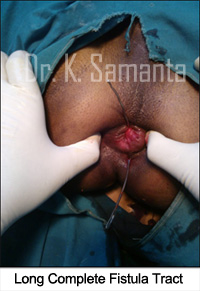 Can a fistula heal on its own?
Can a fistula heal on its own?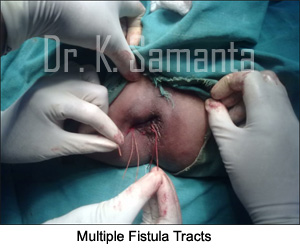 This is normal in the days after your surgery.
This is normal in the days after your surgery.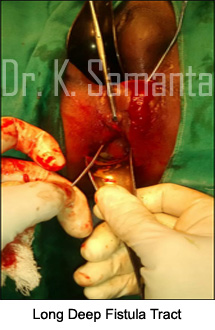 How do you diagnose a fistula?
How do you diagnose a fistula?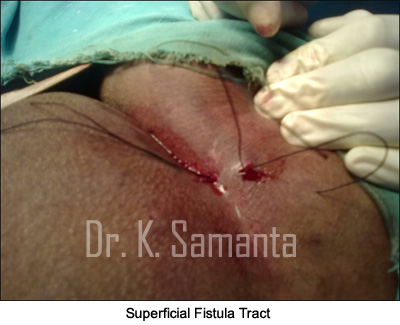
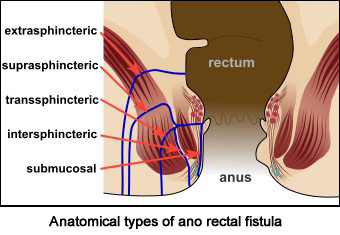 away, it can leave a small channel behind.
away, it can leave a small channel behind.